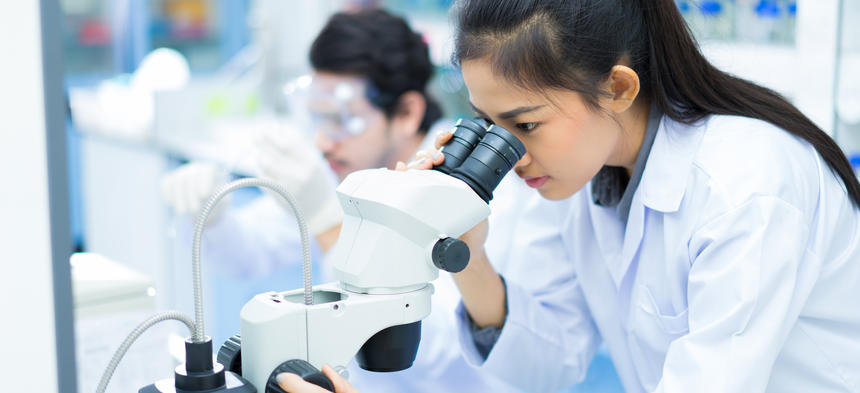Blood Tests
Allergy blood tests measure the presence of IgE antibodies to specific foods.

Allergy blood tests measure the presence of IgE antibodies to specific foods. (IgE, short for “immunoglobulin E,” is the antibody that triggers food allergy symptoms.) In the past, these tests were called “RASTs” (which stands for radioallergosorbent tests) because they used radioactivity, but modern tests do not.
What is allergy blood testing?
Allergy blood testing, also known as sIgE (specific immunoglobulin E) testing, uses one small blood sample to measure the amount of allergen-specific IgE antibodies in the blood. The test can look at many possible allergens to determine if you’re sensitized (have specific IgE) to any of those allergens, including pollens, molds, foods, and animal dander.
What is the difference between blood tests and skin prick tests?
Both blood allergy testing and skin prick tests (SPTs) detect allergen-specific IgE. With the skin tests, results are typically available within 15 to 20 minutes after the test is administered in your clinician's office. With blood tests, the blood sample must be sent to a lab, and results are typically provided within a few days.
Unlike the skin prick test, the blood test is not affected by antihistamines, and it can be performed on patients of any age, patients with extensive rashes (e.g., eczema, hives), and patients who are pregnant.
What allergies can blood tests be used to test for?
Allergy blood tests are commonly used to identify sensitization to foods, pollens, molds, animal dander, dust mites, insect venoms, and some medications.
When should you get a food allergy blood test?
You should only request a test if you have food allergy symptoms. Random testing of panels containing a large number of food allergens, whether by skin prick or blood-based methods, is not recommended due to an increased possibility of obtaining clinically irrelevant or false positive results. Testing only allergens suspected by clinical history will also help to limit the overall costs involved.
Blood testing or skin prick testing alone does not confirm a food allergy diagnosis. Along with your medical history, test results can help aid in the diagnosis of allergy.
Once your healthcare provider confirms you have a food allergy diagnosis, they can work with you to determine an appropriate and personalized treatment plan tailored to your needs.
What are the symptoms that show you might have a food allergy?
It is only appropriate to be tested for food allergies if you are experiencing symptoms. Symptoms of a possible food allergy include:
- Skin symptoms: Hives, itching, flushing, or swelling, especially of the face, lips, tongue, and eyelids
- Mouth and throat symptoms: Itching or tingling in the mouth, swelling of the throat, hoarseness, or a change in voice
- Nose and nasal symptoms: Runny nose, nasal congestion, sneezing, or a metallic taste
- Lungs and chest symptoms: Wheezing, coughing, chest tightness, or difficulty breathing
- Stomach symptoms: Abdominal pain, cramps, diarrhea, nausea, or vomiting
- Head symptoms: Dizziness, lightheadedness, or fainting
- Heart symptoms: Changes in heart rate, weakness, or low blood pressure
- Nervous system symptoms: Anxiety, confusion, or a sense of impending doom
What are the benefits of food allergy blood testing?
Blood tests are easy, safe, and accessible. Allergy blood tests only require a blood draw, which takes a small amount of blood from the patient.
Blood tests can aid in the diagnosis of food allergy. Blood allergy testing is considered as effective as skin prick testing and these tests are sometimes used in conjunction. Blood tests can help identify specific allergens that may be triggering your symptoms. In the overall workup of a food allergy, an additional test called an oral food challenge (OFC) may be necessary to fully confirm or rule out an actual food allergy. The OFC is considered the gold standard for diagnosing food allergies. This procedure is performed under medical supervision, in a clinic equipped to treat both mild and more serious allergic reactions, should one occur.
Many health care providers can read and interpret the results of a food allergy blood test. If a food allergy is confirmed, your health care provider can prescribe the appropriate medications, such as emergency treatments (epinephrine) and antihistamine, provide guidance on food allergy management, and discuss how to avoid your food allergen and eliminate it from your diet. In addition, you can be referred to an allergist who can further discuss options for long-term management and treatment.
Can blood tests produce false positive results?
Both skin and blood tests measure specific IgE to allergens. These tests are very sensitive, meaning a negative result is very reassuring and helps to rule out allergy. A positive result must be interpreted in the context of clinical history because patients can have IgE antibodies without having a clinical allergy. This means that although specific IgE may be present, they don’t have symptoms when exposed to that allergen.
A patient needs to have symptoms and specific IgE to an allergen to be diagnosed with a clinical allergy.
What is allergen component testing?
Allergen component testing looks at specific proteins within whole allergens to understand more precisely how a patient may react when exposed to a specific allergen. For example, some healthcare professionals may order component tests for peanuts, which tests for proteins within the peanut (the “whole allergen”) such as Ara 1, 2, 3, 6, 8, and 9. This may provide your healthcare professional with more in-depth information about your allergy, which can help determine your risk for a systemic reaction.
Compared to skin prick testing and blood testing that uses whole allergens, component testing with food allergens can enhance the overall risk assessment and provide useful guidance for when to perform oral food challenges. Allergen component testing is available for many food allergens, such as peanut, milk, egg, tree nuts, wheat, and sesame.
How much does a food allergy blood test cost?
The cost for a food allergy blood test depends on a few factors. Factors include how many allergens are being tested, your health insurance coverage, and the lab doing the test.
Most health insurance plans, including Medicare and Medicaid, cover food allergy blood testing. For more specific cost information, contact your insurance company, or contact your provider for associated costs and options.
How can I talk to my healthcare provider about food allergy blood testing?
Start by asking your health care provider if a food allergy blood test is right for you or your child. You can mention any symptoms or concerns you have about food allergy. Your health care provider will help you determine the best next steps for you or your family.
References
1Siles RI, Hsieh FH. Allergy blood testing: A practical guide for clinicians. Cleve Clin J Med. 2011 Sep;78(9):585-92. doi: 10.3949/ccjm.78a.11023. PMID: 21885690.Bonnelykke K, Pipper CB, Bisgaard H. J Allergy Clin Immunol. 2008;121(3):646-651.
2Lu, Y. Z., & Kwong, K. Y. C. (2024). A comparison of healthcare utilization and outcomes following skin vs. serum-specific IgE allergy testing. Journal of Medical Economics, 27(1), 730–737. https://doi.org/10.1080/13696998.2024.2349471
3 Pali-Schöll I, Namazy J, Jensen-Jarolim E. Allergic diseases and asthma in pregnancy, a secondary publication. World Allergy Organ J. 2017 Mar 2;10(1):10. doi: 10.1186/s40413-017-0141-8. PMID: 28286601; PMCID: PMC5333384.
4 A WAO - ARIA - GA²LEN consensus document on molecular-based allergy diagnostics. Canonica, Giorgio Walter et al. World Allergy Organization Journal, Volume 6, 17.
5 Gupta RS, Epstein E, Wood RA. The role of pediatricians in the diagnosis and management of IgE-mediated food allergy: a review. Front Pediatr. 2024 May 30;12:1373373. doi: 10.3389/fped.2024.1373373. PMID: 38873581; PMCID: PMC11169649.
6 Foong RX, Dantzer JA, Wood RA, Santos AF. Improving Diagnostic Accuracy in Food Allergy. J Allergy Clin Immunol Pract. 2021 Jan;9(1):71-80. doi: 10.1016/j.jaip.2020.09.037. PMID: 33429723; PMCID: PMC7794657.
Sponsored by Allergy Insider, brought to you by Thermo Fisher Scientific



